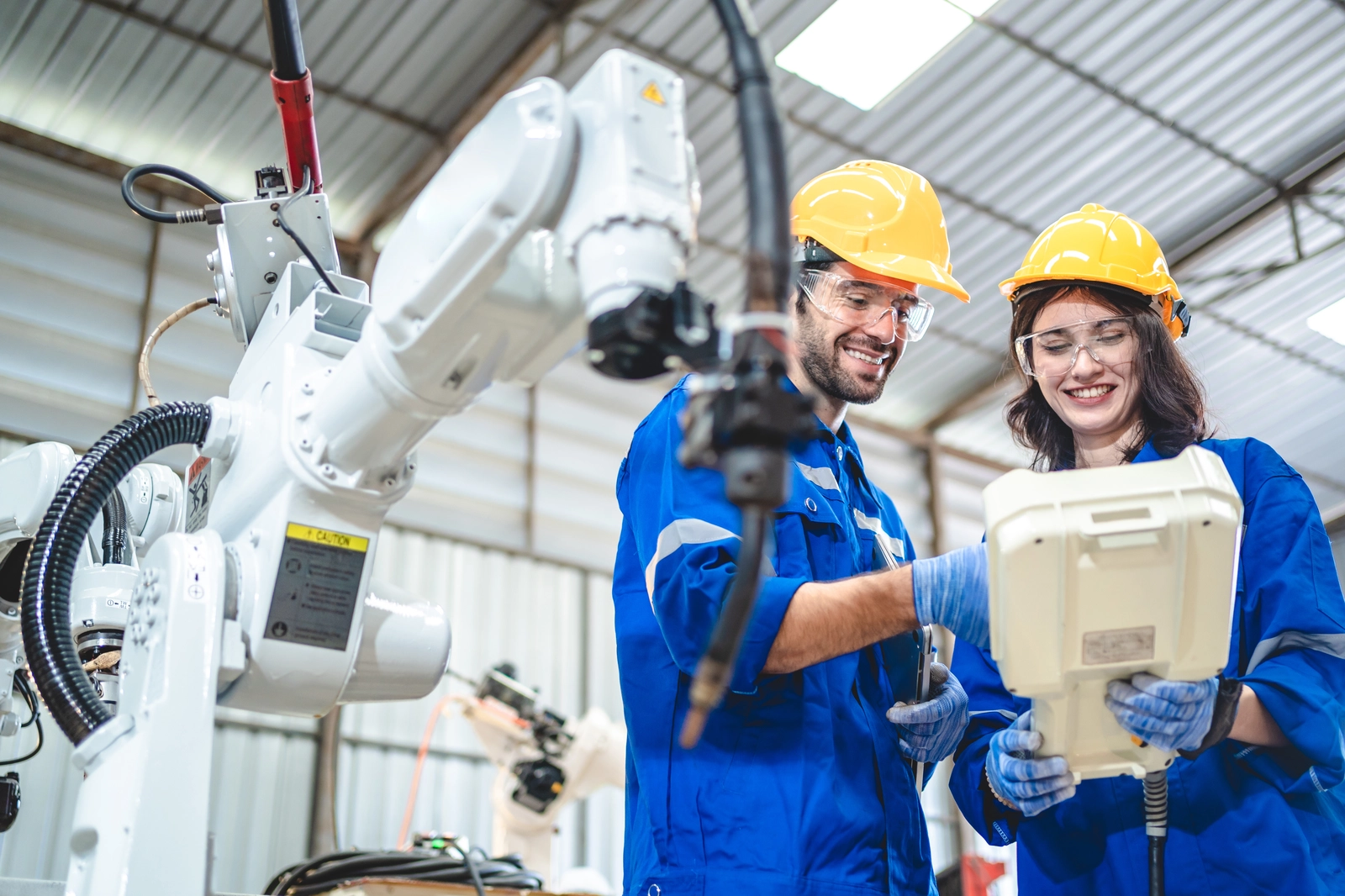As industries embrace the future of automation, Artificial Intelligence (AI) and Machine Learning (ML) have become game-changers in the realm of automated control systems. These advanced technologies are enabling smarter, more efficient systems that can analyze vast amounts of data, learn from it, and make adjustments in real time. The combination of AI and ML in automation is revolutionizing industries by optimizing processes, improving safety, and reducing operational costs. For a more comprehensive understanding of how automation is evolving, explore The Complete Guide to Automated Controls for Industrial and Commercial Applications.
This blog will explore how AI and ML are transforming automated controls and what businesses can expect from these technologies in the future.
How AI and ML Enhance Automated Control Systems
At the heart of Artificial Intelligence (AI) and Machine Learning (ML) is their ability to analyze large sets of data, identify patterns, and make decisions based on real-time inputs. When integrated into automated control systems, AI and ML can help businesses optimize their processes and improve decision-making. These systems learn from the data they collect and make continuous improvements to operations without the need for manual intervention.
For example, AI-powered automation systems can analyze production data from manufacturing facilities and detect inefficiencies in the process. They can then make real-time adjustments to improve production flow, minimize waste, and enhance productivity. Over time, the system continues to learn and adapt, improving performance as more data becomes available.
Predictive Analytics: Preventing Downtime with AI and ML
One of the most significant applications of AI and ML in automated control systems is predictive analytics. AI-driven predictive maintenance systems use data from sensors to detect patterns and anomalies that indicate potential equipment failures. By predicting when machines are likely to fail, businesses can schedule maintenance in advance, avoiding costly breakdowns and minimizing downtime.
For example, AI algorithms can analyze data from vibration sensors on industrial machinery to detect early signs of wear and tear. If the data indicates that a machine is likely to fail within the next week, the system can automatically schedule maintenance before the failure occurs, preventing unexpected downtime.
This proactive approach to maintenance helps businesses extend the lifespan of their equipment, reduce repair costs, and keep operations running smoothly.
AI-Powered Quality Control
Quality control is another area where AI is making a significant impact in automated control systems. Traditional quality control methods rely on human inspectors to detect defects in products. However, AI-powered systems can analyze products at a much faster rate, identifying defects that may not be visible to the human eye.
For instance, in the manufacturing industry, AI-powered computer vision systems can inspect products on the assembly line in real time. These systems can detect even the smallest defects, such as scratches, discoloration, or structural inconsistencies, ensuring that only high-quality products reach the market. The use of AI in quality control improves accuracy, reduces waste, and enhances overall product quality.
Optimizing Energy Usage with AI
Energy consumption is a significant operational cost for many industries, particularly in large-scale manufacturing and commercial facilities. AI-powered automation systems can help businesses optimize their energy usage by analyzing real-time data from energy meters, HVAC systems, and other equipment.
For example, AI can predict energy demand based on historical data and environmental factors, such as weather conditions. This allows businesses to adjust their energy usage in real time, reducing consumption during peak demand periods and lowering utility bills.
In addition, AI systems can detect when equipment is consuming more energy than necessary and make automatic adjustments to improve efficiency. This level of control not only reduces operational costs but also contributes to a more sustainable and environmentally friendly operation.
The Role of Machine Learning in Process Optimization
Machine Learning (ML) enables automated control systems to continuously improve over time by learning from the data they collect. In industries such as manufacturing, logistics, and energy, ML algorithms analyze data from various sensors and systems to optimize production processes, reduce waste, and improve operational efficiency.
For example, in a factory setting, ML algorithms can analyze production data to identify bottlenecks in the assembly line. The system can then recommend or implement adjustments to streamline the process, reducing cycle times and improving overall productivity.
As the system continues to learn from new data, it becomes more efficient at identifying potential improvements, making it a valuable tool for long-term process optimization.
The Future of AI and ML in Automated Controls
The future of AI and ML in automated control systems is full of possibilities. As these technologies continue to evolve, businesses can expect even greater levels of automation and intelligence in their operations. AI-powered automation systems will become more adept at making real-time decisions, optimizing energy usage, and predicting equipment failures.
Additionally, AI and ML will play a significant role in enabling autonomous systems, where machines can operate without human intervention, learning from their environment and adapting to changing conditions. These advancements will further reduce operational costs, improve safety, and enhance the overall efficiency of industrial processes.
Enhance Your Operations with AI-Powered Automation
The integration of AI and Machine Learning into automated control systems is transforming industries, allowing businesses to optimize their operations, reduce downtime, and improve product quality. By leveraging these advanced technologies, companies can stay competitive in today’s fast-paced market and prepare for the future of automation.
To explore how AI-powered automation can enhance your operations, schedule a consultation with TRLINK. Our experts will help you implement cutting-edge AI and ML solutions tailored to your business needs.


